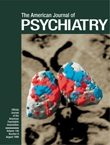Risperidone-Induced Tardive Dyskinesia
Ms. A, a 21-year-old, single, female college student, came to the Samsung Medical Center Outpatient Clinic with complaints of auditory hallucinations. She had had ideas of reference and difficulties in social adaptation for the past year or so. She did not have any major illness or movement disorders. Her motor, sensory, and cerebellar functions were intact; no focal signs were detected. Results of an EEG were normal. After being diagnosed with schizophrenia according to DSM-IV criteria, Ms. A was placed on a regimen of risperidone, 1 mg/day, and trihexyphenidyl, 2.5 mg/day. Her symptoms subsided gradually during the first 2 months, and there were no adverse effects such as extrapyramidal symptoms. Her dose of risperidone was increased to 1.5 mg/day, and trihexyphenidyl treatment was discontinued by the third month. At this point, her psychotic symptoms had subsided completely, and her medication dose was maintained.In the fifth month of treatment, Ms. A began to show involuntary perioral and tongue movements. Chewing motions and vermicular movements of the tongue were noticeable even when her mouth was closed. No other involuntary movements were seen in the rest of her body. Neither cogwheel rigidity nor tremor was observed. One month after the onset of dyskinetic symptoms, risperidone treatment was replaced with sulpiride, 100 mg/day. Two months of sulpiride treatment did not cause any significant improvement in Ms. A’s tardive dyskinesia symptoms; therefore, her medication was changed to a regimen of clozapine. She soon switched back to sulpiride because she could not tolerate the sedative effect of clozapine. Presently, Ms. A is on a regimen of sulpiride, 100 mg/day, which maintains her remission from psychotic symptoms. Her dyskinetic symptoms are held to a minimum. We wish to change her medication to olanzapine in the near future.
References
Information & Authors
Information
Published In
History
Authors
Metrics & Citations
Metrics
Citations
Export Citations
If you have the appropriate software installed, you can download article citation data to the citation manager of your choice. Simply select your manager software from the list below and click Download.
For more information or tips please see 'Downloading to a citation manager' in the Help menu.
View Options
View options
PDF/EPUB
View PDF/EPUBGet Access
Login options
Already a subscriber? Access your subscription through your login credentials or your institution for full access to this article.
Personal login Institutional Login Open Athens loginNot a subscriber?
PsychiatryOnline subscription options offer access to the DSM-5-TR® library, books, journals, CME, and patient resources. This all-in-one virtual library provides psychiatrists and mental health professionals with key resources for diagnosis, treatment, research, and professional development.
Need more help? PsychiatryOnline Customer Service may be reached by emailing [email protected] or by calling 800-368-5777 (in the U.S.) or 703-907-7322 (outside the U.S.).

